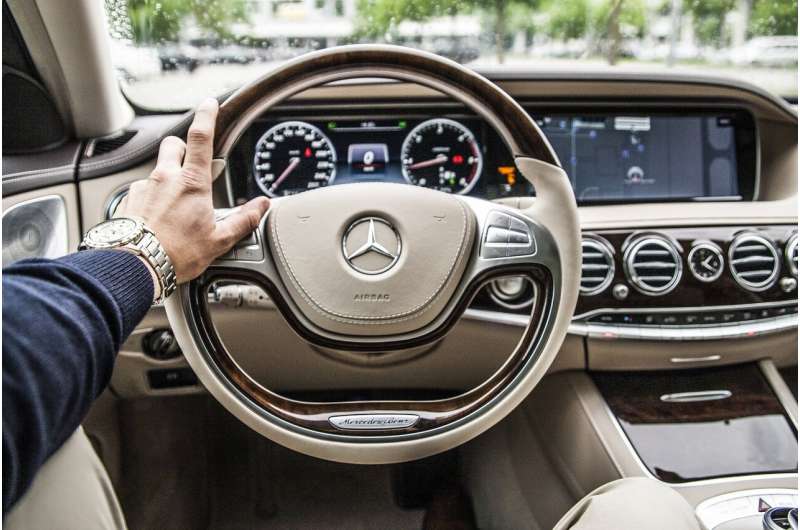New study: Adaptive cruise-control and other driver-assistance systems may increase distracted driving

Drivers familiar with using adaptive cruise-control and other driver-assistance systems are more likely to drive while distracted, a new study says.
The study found that drivers who own cars with the assistance technology are nearly twice as likely to engage in distracting behavior—such as texting, fidgeting with the radio or not keeping their eyes on the road—when the systems are turned on than when they are turned off.
But the opposite was true with drivers new to the technology. They were less likely to engage in distracted driving when the systems were activated than when they were not.
The study, released last week, was conducted in collaboration between the Virginia Tech Transportation Institute and the AAA Foundation for Traffic Safety.
Researchers analyzed behavior from two different groups of participants. The first group, 30 participants from the Washington, D.C., area, used their personal cars, while the second group, 120 participants from the same area, were issued cars.
In both groups, the vehicles were equipped with adaptive cruise-control and lane-keeping assist systems. The cruise-control system automatically speeds or slows a car to keep pace with traffic, while the lane-keeping system prevents the vehicle from drifting into another lane.
Video cameras and sensors installed in the cars recorded drivers' behaviors and eye movements.
The distracting behaviors recorded ranged from texting, holding a cellphone, adjusting the radio or smoking a cigarette to looking at a pedestrian, talking to a passenger or not keeping eyes on the road.
Drivers using their personal vehicles who had more experience using the automated systems engaged in these distracting behaviors more often than drivers in the other group, who were less familiar with the technology.
That's because drivers using the issued cars were still learning the systems and less likely to trust the technology, the researchers theorized.
In addition, the drivers who were issued cars received detailed training about the systems. The authors note that the training could account for why participants in some cases were less likely to drive distracted.
The drivers who used their personal cars were not given additional training. Recent research has suggested that automotive dealers may not adequately educate buyers on the use of driver-assistance features, the study said.
"Users of automotive technology only receive a minimal set of written and verbal instructions prior to use on public roadways in live traffic," the researchers wrote.
Driver-assistance systems can improve safety, but drivers may overestimate the technology's ability to prevent crashes, the study said.
"Drivers need to be aware of potential pitfalls that exist even after they have learned when and how to use the systems," the authors cautioned.
In Seattle, at least 24 serious or fatal crashes in 2018 involved inattention, which could include distracted driving or drivers lost in their thoughts, according to data from the Seattle Department of Transportation.
Washington state law forbids the use of electronic gadgets such as cellphones, tablets, laptop computers and personal gaming devices while behind the wheel—including at a stop sign or red-light signal. A fine on the first offense is $136, and it increases to $234 for a second offense within five years.
Troopers handed out 5,687 tickets to drivers in King County, Wash., who used electronic devices and 82 tickets for non-electronic distracted driving in 2019 up to Dec. 17, said Washington State Patrol Trooper Rick Johnson. Statewide, including King County, troopers gave out 20,639 violations for distracted driving and 1,049 for non-electronic distractions.
©2019 The Seattle Times
Distributed by Tribune Content Agency, LLC.




















